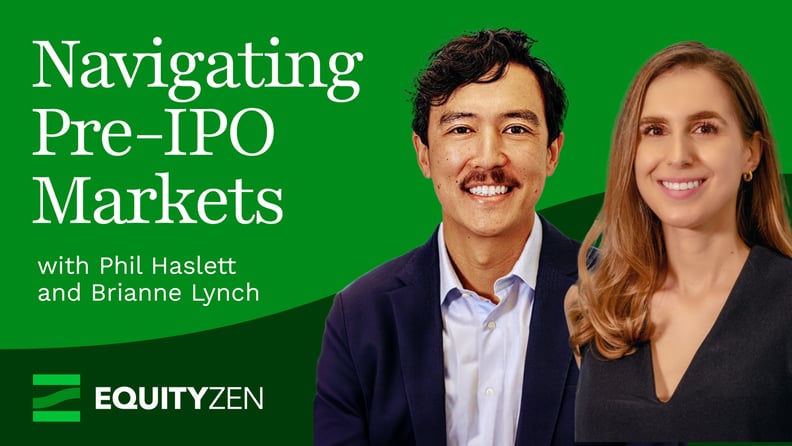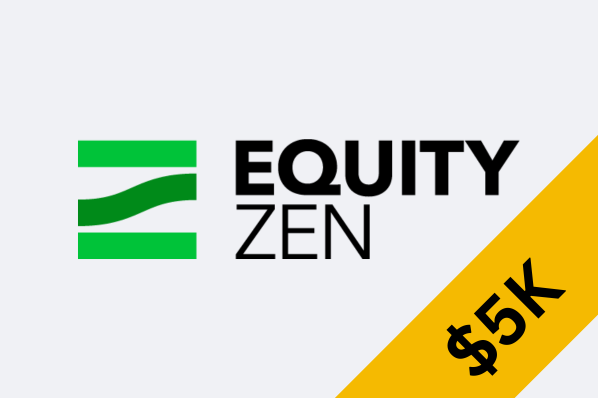Originally published in Kiplinger
Larry Fink, CEO of BlackRock, recently released his annual letter, offering his view on the future of investing. He honed in on the importance of investment democratization, particularly within the private markets. Why? He sees private market investing as a means of “expanding prosperity in more places, for more people”, especially in a volatile market environment. Here are six key takeaways investors need to know:
1. The Prosperity Flywheel
"The prosperity flywheel will spin faster, generating more growth—not just for the global economy or large institutional investors, but for investors of all sizes around the world."
The "prosperity flywheel" refers to the positive cycle through which expanded market access leads to greater investment opportunities, which in turn drive broader economic prosperity. Private market investments have historically provided strong returns compared to public markets, partly due to their ability to withstand short-term volatility.1 As more investors gain access to these opportunities, capital can flow more freely, fueling innovation and economic growth. Public market investors are missing out on this growth opportunity.
2. Market Democratization is Key
"The solution isn't to abandon markets; it's to expand them, to finish the market democratization that began 400 years ago and let more people own a meaningful stake in the growth happening around them."
The creation of the public stock market over 400 years ago was the first act of market democratization, enabling individual investors to participate in the growth of companies. But this hasn’t trickled down to the private markets at scale. A truly democratic market doesn’t exclude individual investors from high-growth opportunities and the time to change that is now.
This very belief was the reason why EquityZen was founded. Through our marketplace individual accredited investors can gain exposure to pre-IPO companies with investment minimums as low as $5,000. This broadened access bridges the gap between public and private markets, enabling new growth opportunities. This is the next stage of democratization.
3. The Private Markets are the Home of Innovation
"Assets that will define the future—data centers, ports, power grids, the world’s fastest-growing private companies—aren’t available to most investors. They're in private markets, locked behind high walls, with gates that open only for the wealthiest or largest market participants."
From artificial intelligence to cybersecurity, industry changing companies are growing within the private markets. Over 1,2000 unicorn companies are worth an aggregate $4.4 trillion. As these companies stay private longer, it is questionable how much upside is left once these companies do go public. For more investors to tap into this growth, private market access, while not without risk, is crucial.
4. Diversification Beyond the 60/40 Portfolio
"The future standard portfolio may look more like 50/30/20—stocks, bonds, and private assets like real estate, infrastructure, and private credit….Bridging the divide between the 50/30 and the 20 is almost impossible for most individuals. Even those who can afford it face another diversification problem within that 20%. Often, they barely have enough capital to meet the minimum for just one private fund—and having 20% of your portfolio... The divide between public and private markets is a tough problem—but it's solvable."
Regardless of how you invest, diversification is critical.2 As the private market grows, private assets should play a greater role in balanced portfolios. Private company investments allow diversification beyond traditional stock and bond allocations, potentially enhancing returns and mitigating concentration risk.
However, these investments have historically had high barriers to entry, constrained by high minimums, a lack of liquidity, and arduous investment processes. Technology is lowering these hurdles, making it easier for accredited investors to participate at scale. Innovative investment platforms like EquityZen allow more investors to gain exposure to these assets and diversify their portfolios, not just the ultra-wealthy.
5. Data Drives Democratization
"Private markets don’t have to be as risky. Or opaque. Or out of reach. Not if the investment industry is willing to innovate... With clearer, more timely data… private markets will be accessible, simple markets. Easy to buy. Easy to track."
Private markets have not historically offered the same level of publicly available information as public markets. However, that doesn’t mean that the private market must be opaque. Data platforms like Pitchbook and Yahoo Finance make it easier than ever for investors to research private market opportunities.
At EquityZen, our Private Market Map and Company Pages are home to a broad suite of information, backed by data from over 45,000 transactions in over 450 private companies.3 Our recent partnership with Yahoo Finance aims to make this information even more broadly accessible to investors globally. Access to data is key to leveling the playing field.
6. Retirement Portfolios Should Include Private Assets
"We need to make it clear: Private assets are legal in retirement accounts. They're beneficial. And they're becoming increasingly transparent."
For many investors, retirement accounts represent their largest pool of investable assets. The inclusion of private market investments in 401(k)s and IRAs is a growing trend, providing another avenue for long-term growth. Furthermore, the long-term investment horizon for many private market investments often aligns with the long-term goals of retirement accounts.
EquityZen works with Alto IRA and RocketDollar to enable private market investments in retirement accounts, enabling more investors to harness the power of the private markets.
Final Thoughts
Larry Fink’s letter reinforces the importance of private market access in today’s evolving investment landscape. Investors don’t need to wait for this access. Through EquityZen, accredited investors can participate in the growth of high-potential companies before they go public, contributing to a more inclusive financial future. Don’t wait for tomorrow. Explore the future of investing today with EquityZen.
Not all pre-IPO companies will go public or be acquired, and not all IPOs or acquisitions are or will become successful investments. There are inherent risks in pre-IPO investments, including the risk of loss of the entire investment, illiquidity, and fluctuations in value and returns. Investors must be able to afford the loss of their entire investment.
Footnotes:
1. Investments in private companies are illiquid, may be speculative, and have substantial risks, including the risk of loss.
2. Diversification does not assure a profit or protect against market loss.
3. The information in the Private Market Map and Company Pages is intended for reference only and does not constitute a recommendation or personal financial advice. Use of this information is at the user's discretion and risk.








